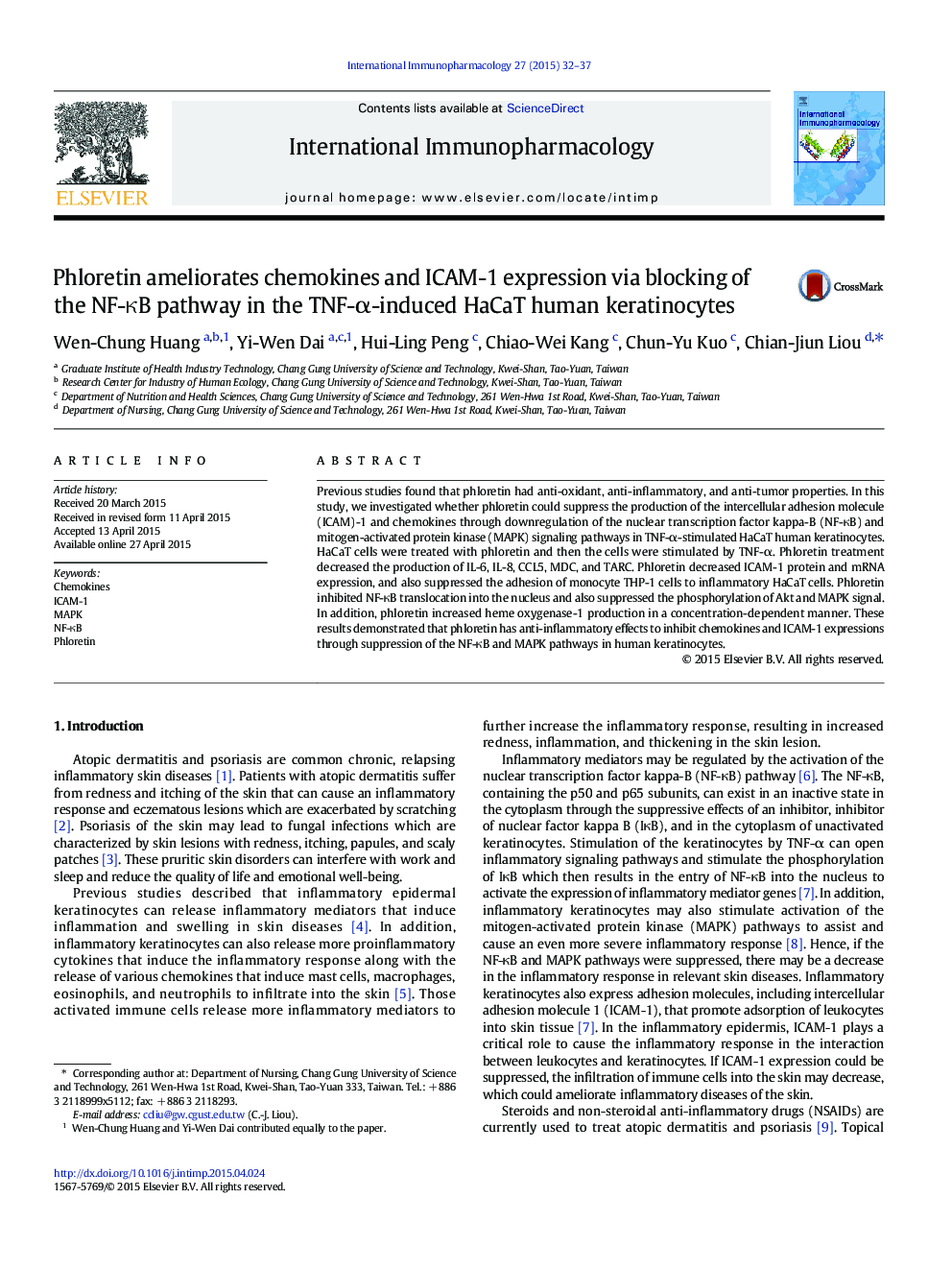| Article ID | Journal | Published Year | Pages | File Type |
|---|---|---|---|---|
| 2540656 | International Immunopharmacology | 2015 | 6 Pages |
•Phloretin reduced pro-inflammatory cytokines and chemokine production via NF-κB and MAPK pathways in HaCaT cells.•Phloretin also suppressed ICAM-1 protein and mRNA expression.•Phloretin increased HO-1 and Nrf2 productions.•Phloretin suppressed the ability of monocytes to adhere to inflammatory HaCaT cells.
Previous studies found that phloretin had anti-oxidant, anti-inflammatory, and anti-tumor properties. In this study, we investigated whether phloretin could suppress the production of the intercellular adhesion molecule (ICAM)-1 and chemokines through downregulation of the nuclear transcription factor kappa-B (NF-κB) and mitogen-activated protein kinase (MAPK) signaling pathways in TNF-α-stimulated HaCaT human keratinocytes. HaCaT cells were treated with phloretin and then the cells were stimulated by TNF-α. Phloretin treatment decreased the production of IL-6, IL-8, CCL5, MDC, and TARC. Phloretin decreased ICAM-1 protein and mRNA expression, and also suppressed the adhesion of monocyte THP-1 cells to inflammatory HaCaT cells. Phloretin inhibited NF-κB translocation into the nucleus and also suppressed the phosphorylation of Akt and MAPK signal. In addition, phloretin increased heme oxygenase-1 production in a concentration-dependent manner. These results demonstrated that phloretin has anti-inflammatory effects to inhibit chemokines and ICAM-1 expressions through suppression of the NF-κB and MAPK pathways in human keratinocytes.
Graphical abstractFigure optionsDownload full-size imageDownload as PowerPoint slide
